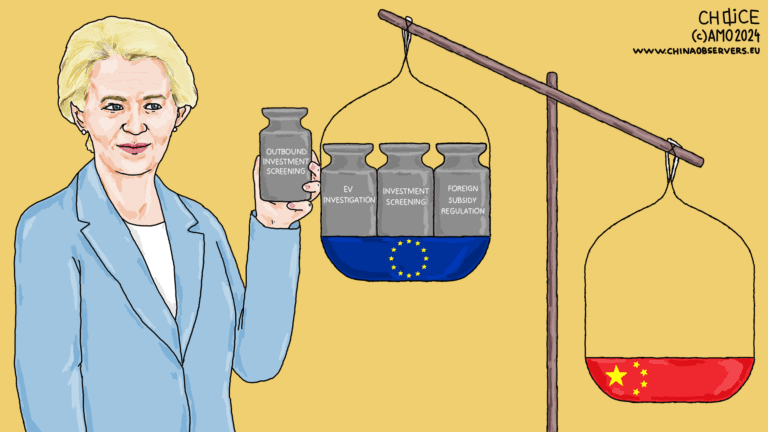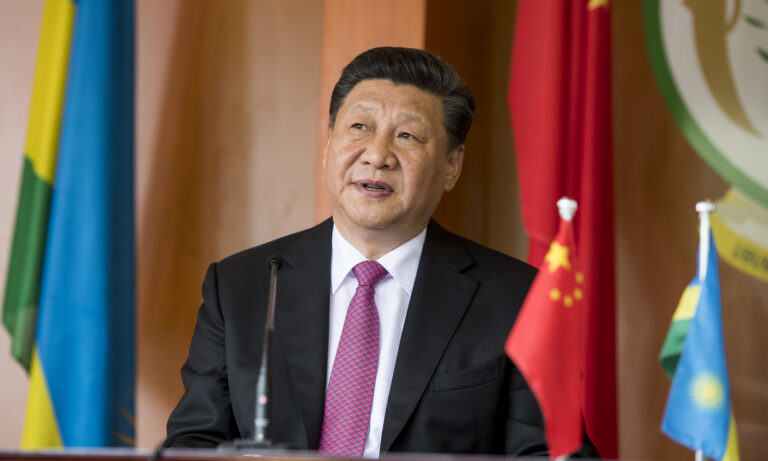#Security
China’s LOGINK: Securing Maritime Data in European Ports
A Chinese logistics software has quietly extended into ports in Asia and Europe. Its expansion is now in the spotlight due to the EU’s new port strategy and US ban.
China’s Cautious Response to the Red Sea Crisis
As Houthi attacks on shipping lines in the Red Sea continue, China’s economic stakes in the region are becoming increasingly exposed. However, despite the growing costs of the Houthis’ persistent targeting of commercial ships, China’s public reaction has remained relatively cautious. But the longer the conflict continues, the more pressure there will be on China to prove its dedication to becoming a constructive player in the resolution of “hotspot issues.”
Voice for CHOICE #36: Assessing the European Economic Security Package with Tobias Gehrke
In January 2024, the European Commission revealed five new initiatives aimed at advancing the implementation of its Economic Security Strategy, which was formally introduced in the summer of the previous year. The proposal seeks…
Security Recall: The Risk of Chinese Electric Vehicles in Europe
The security challenge posed by Chinese electric vehicles is in many ways greater – and trickier to solve – than that of 5G networks. With such cars entering the European market at growing speed, policymakers need to move swiftly.
Voice for CHOICE #34: Taiwan Election Insights with Marcin Jerzewski
The 2024 presidential election in Taiwan holds great significance as it will determine the future of Taiwan’s relationship with China, the United States, and the rest of the world. Though the West often views…
China’s Position on the Gaza War: Missing the Nuances
It has been over two months since the current conflict between Israel and Hamas started. Many have hoped that China will leverage its ‘friends to all’ position in the Middle East to facilitate a resolution of the conflict, including by participating in the release of hostages still held in Gaza. However, if Beijing’s success in brokering a rapprochement between Iran and Saudi Arabia earlier this year raised expectations of China’s greater diplomatic engagement in the region, then its reaction to the October 7 attack has managed to shatter them.
Voice for CHOICE #33: Discussing Prague Castle’s China Policy with Petr Kolář
After the honeymoon period of Czech-China relations that started in 2013, the bilateral ties gradually soured. This shift was linked to the perceived lack of benefits stemming from economic cooperation and various security-related events…
Joseph Wu Tours the Baltics: Uplifting on Values, Convincing on Security, Discouraging on Economy
In a visit to the Baltic capitals, Joseph Wu highlighted shared threats, underscored the shrinking comfort space for small democracies to dwell in globally, and attempted to rally more political support for raising Taiwan’s profile in Europe – all that while trying to curb the unrealistic Baltic economic expectations towards Taiwan.
Israel-Hamas War: Testing Beijing’s Regional Diplomacy
On October 7, Hamas launched a surprise attack on Israel, resulting in more than a thousand deaths. As the world braces itself for a potential regional escalation in the face of Israel’s planned ground operation in Gaza, China’s attitude seems to be moving towards “pro-Palestinian neutrality.”
Ambiguity: The Key Obstacle for China’s Ambition to Reshape the Global Order
s long as China remains incapable of clearly communicating its global visions, it will not be able to reform the global order as a “responsible great power” but will only disrupt it, regardless of its intentions.
Why Is There No Room for China in Poland’s Electoral Debate?
Despite accelerating geopolitical changes across the globe, Poland’s electoral debate bears close to no sign of them, with China remaining on the very sidelines of the discussions among local politicians. This problem is symptomatic of not only Poland’s lack of strategic thinking regarding China, but also of a broader intellectual disconnect in the perception of what is domestically believed to be important (economy, security) and the international forces shaping these issues.











